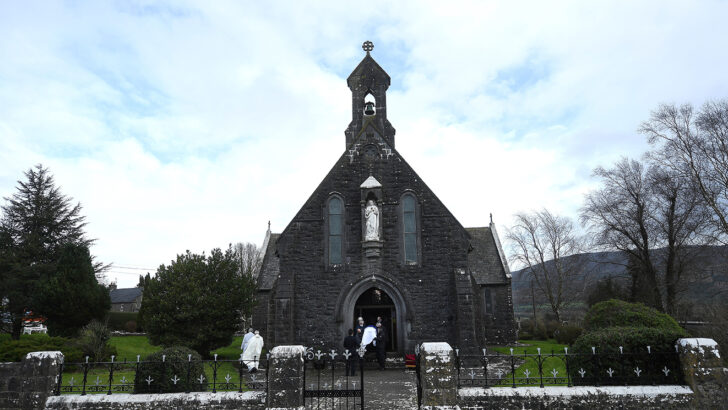Garry O’Sullivan & Brandon Scott
Dioceses are increasingly turning to shared funeral ministry as a consequence of priest shortages, with plans to develop the collaborative ministry at various stages of development in a number of dioceses.
The Archdiocese of Dublin is very much ahead of other dioceses in terms of funeral ministry says Patricia Carroll, Director of the Office for Mission and Ministry, speaking to The Irish Catholic.
“We’ve had funeral ministry teams for 20 years. Now we have added funeral prayer leaders who lead the burial rite and cremation prayers. In the past year Dublin has trained 100 funeral prayer leaders and these people always emerge from funeral ministry teams. In 2024 we had three rounds of training based on four modules.
“We are trying to strategically build up a mass of people who can lead funeral prayer rites. This is not replacing the priest. It is a shared ministry between priest, funeral team and funeral prayer leader. It will mean in these parishes which have trained prayer leaders the priest will still lead the main funeral liturgy in the Church.”
But not everyone needs or wants a funeral Mass but for those who do, the priest will share the ministry with laity.
“Priests have always been able to pastorally offer an alternative to a Mass i.e., a service instead of a Mass, so this should be offered as many who present themselves are unchurched.
“So the model in Dublin is shared ministry, some prayers are said by laity but generally the priest presides. Other dioceses are looking at the Dublin model and some have adopted our four modules and implemented them in their dioceses.”
Fr Joe Tynan is PP of Knocklong & Glenbrohane, Ballylanders in Limerick and says planning now is prudent.
“The first training programme has completed now. It’s being rolled out in the pastoral areas on an ongoing basis. We are lucky that although we do have a vocations crisis in Ireland, we’re not under too much pressure right now.
“What we’re trying to do is take pre-emptive measures and these will be shadowed by clergy while they’re still here to ensure that laypeople will not just be dropped in cold into these situations.
“Those involved have done three nights of training to outline what’s involved in it. The hope is that for the foreseeable future they will come along and accompany the priests in bereavements situations and funeral liturgies and will grow into the role.”
Achonry Diocese is also discussing a plan for funeral ministry teams. Unlike large cities it is believed that in smaller rural dioceses priests can cope with the number of funerals currently but planning for a future will far fewer priests is seen as unavoidable.


 Brandon Scott
Brandon Scott
